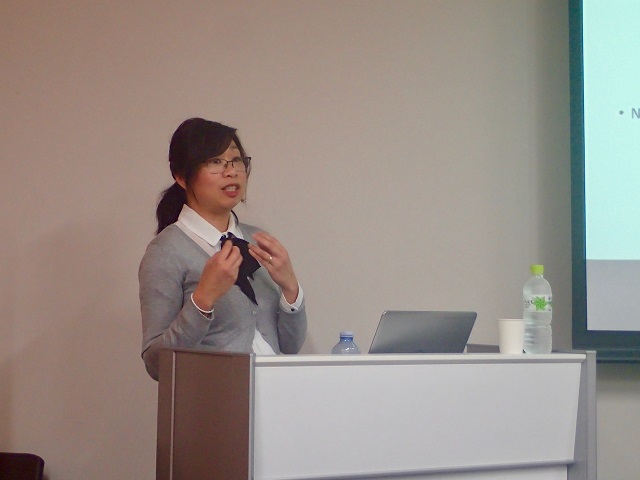Re-designing people's beliefs and attitudes about weight gain and obesity: Implications for anti-obesity campaigns
Speaker: Dr Rachel Dryer (Senior Lecturer, School of Psychology, Charles Sturt University, Australia)
Date and Time: 17:00-19:00, Wednesday, November 1, 2017
Location: updated on Oct 27
The 2nd conference room, 1st Floor Room 216, second floor, Faculty of Education Main Bldg., Kyoto University
http://www.kyoto-u.ac.jp/en/access/yoshida/main.html (No.21 on the map)
Sponsored by: Collaborative Graduate Program in Design (Design School), Kyoto University
Contact: manalo.emmanuel.3z[at]kyoto-u.ac.jp(Please change [at] to @.)
Emmanuel Manalo (Professor, Graduate School of Education)
Abstract:
Obesity is recognised as a significant global problem in modern societies due to its rapid rate of growth and the associated health risks for individuals affected by this condition. Understanding how best to design educational initiatives for the general public to promote healthy eating and behaviours in order to prevent this condition is an important challenge facing health educators. This lecture will present some new research findings in this topic from Dr Rachel Dryer (Senior Lecturer, School of Psychology, Charles Sturt University, Australia). For instance, an examination of current anti-obesity advertisements found that advertisements perceived to be stigmatising towards overweight and obese individuals were less likely to be effective in motivating and inspiring self-efficacy for adopting healthy lifestyle behaviours in audiences, compared to advertisements that were perceived to be less stigmatising. Moreover, viewers’ levels of internalised stigma and causal beliefs about obesity were found to be significant predictors of perceived stigma in the advertisements. Another important finding is that people’s causal beliefs about obesity and associated levels of stigmatisation towards overweight/obese individuals can be modified. These findings have implications for the design of anti-obesity campaigns in terms of their effectiveness in modifying people’s attitudes and behaviour towards obesity. During the lecture, there will be opportunities to ask questions and engage in discussions about this topic.
Report:
On Wednesday Nov 1, 2017, Dr Rachel Dryer gave a lecture on her recent research findings about people’s beliefs and attitudes concerning eating disorders, weight gain, and obesity. Dr Dryer is a Senior Lecturer in the School of Psychology of Charles Sturt University in Australia. Her main area of research is health psychology, and she has worked not only with other academic researchers, but also with medical practitioners, clinicians, and community health professionals.
In her lecture, Dr Dryer stressed that obesity is now recognized as a significant global problem by many international health organizations such as the World Health Organization (WHO). It was estimated in 2014 that about 40% of all people in the world now meet the criteria for being overweight or obese. Educational campaigns to combat this problem are therefore important and many governments worldwide invest in such campaigns. However, one of Dr Dryer’s key research findings indicates that anti-obesity advertisements that are perceived to be stigmatizing of overweight individuals are less effective in motivating people to adopt healthier eating and other lifestyle behaviors. This finding suggests that advertisements that are less negative in their portrayal of people who are overweight may be more effective in instigating the desired change in people. Such findings are important to consider in the re-design of educational campaigns for the promotion of more healthy lifestyles to reduce the occurrence of problems like obesity.
Dr Dryer’s lecture went very well, and she had discussion with some members of the audience after the lecture about relevance and applications of her findings to the Japanese context.

京都大学 デザイン学大学院連携プログラムKyoto University PAGE TOP